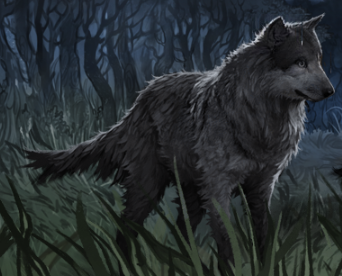The Nice Mr. Werewolf

Werewolves aren’t real. But if they were real, they’d be scary — man-beast hybrids with enormous strength, no judgment or compassion, and vicious case of blood lust. And a few hundred years ago — around the same time as the witch trials in Europe and the Americas — some people believed in the existence of werewolves. As a result, some places, with Estonia being the most notable, were holding werewolf trials.
Werewolf trials worked basically the same way as the witch trials many of us are familiar with. The accused was expected to meet a ridiculously impossible evidentiary burden to demonstrate his or her innocence. A conviction (which was often a fait accompli) meant a death sentence. Per Wikipedia, Estonia was home to 18 such werewolf trials toward the end of the 17th century, during which a total of 31 people (mostly women, surprisingly) were accused of transforming into wolf-like beasts and causing various amounts of carnage.
But one man survived his trial — even though he admitted to being a werewolf. And proudly at that.
In 1691, a man in his 80s was called as a witness before a panel of judges in the town of Jürgensburg in Swedish Livonia (which is now Estonia). He was there to testify in a matter involving an apparent robbery of a church, but his sanity quickly came into question. The man, known as Thiess of Kaltenbrun, had a reputation in town — he was believed to be a werewolf. This did not bode well for Thiess, as werewolves were generally believed to be agents of Satan. Thiess did not deny the charge — or, at least, did not deny that he was a werewolf.
But Thiess claimed he wasn’t an ordinary werewolf. As Wikipedia explains, Thiess testified that he and other werewolves travelled to Hell on a mission to recover grain stolen from Earth by witches loyal to Satan. Confused by the answer — why would Hell’s own hounds steal back the food? — the judges pressed onward with their questions. Wikipedia continues with the recap:
The Jürgensburg judges then asked Thiess where the souls of the werewolves went when they died, and he responded that they would go to Heaven, whilst the souls of the witches would go to Hell. The judges then questioned this, asking how it was possible for the werewolves’ souls to go to Heaven if they were the servants of the Devil. Once more, Thiess reiterated that the werewolves were not servants of the Devil, but of God, and that they undertook their nocturnal journeys to Hell for the good of mankind.
Despite pressure to recant this testimony and admit that werewolves were agents of the Devil, Thiess stuck to his story that he and his other man-beast friends were acting on behalf of Heaven. Thiess did admit that he had lapsed as a practicing churchgoer and began practicing folk magic, and was sentenced to whipping and was banished from the community. But, not having enough evidence to conclude that Thiess was in cahoots with Satan, the judges spared his life.
Bonus Fact: Today, if someone wants to be a witch, they’re typically allowed to be one without fear of reprisals like those found in 17th century witch trials. But in 2011, witches in Romania found themselves suddenly subject to a 16% national income tax, just like any other small business owner would have been. (Witches typically read fortunes, concoct potions, etc.) While some of the practicing witches saw the tax as evidence of their acceptance by the mainstream population, not all the witches took the move so positively. Per the New York Times, many witches put hexes on the government officials who instituted the tax, with one witch in particular “plann[ing] to cast a spell using a particularly effective concoction of cat excrement and a dead dog.” As of this writing, the tax is still in effect, suggesting that the concoction wasn’t all that effective after all.
From the Archives: The Lion Doesn’t Sleep Tonight: A possible explanation as to where full moons are believed to turn people into uncontrollable wolf-beasts.
Take the Quiz: Name the werewolf-themed movies.
Related: One Night Ultimate Werewolf, a very well-regarded party game. 4.8 stars on 248 reviews.
